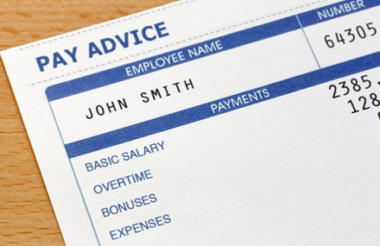A number of learning disability charities face being hit with increased wage costs and huge back-dated payments in the coming months after a dispute regarding pay for sleep-in shift workers.
Campaign group Learning Disability Voices, made up of many voluntary organisations, has warned that government guidance published in October, which instructs organisations to pay overnight care workers the national living wage, could cost the sector £400m.
Most providers previously paid these workers a flat-rate of between £35 and £45 but the Department for Business, Energy and Industrial Strategy (BEIS)’s guidance says minimum wage must be paid to workers even if they are asleep and uses a care home as an example.
Now these charities are not only required to pay their staff a significantly higher wage, but they could be forced to backdate pay by up to six years.
John Cooper, campaigns manager at charity United Response, told Civil Society News that one “very big provider” is due to face penalties in August, while several others face deadlines the following month.
He says the sector faces a back-pay liability from tribunals of around £160m, which could rise to £400m if HMRC investigations require payments for the full six years.
'Providers could collapse'
A position statement from United Response says: “With some providers facing imminent action by the HMRC, the government must resolve the situation now, or risk provider collapse."
The issue has been discussed in Parliament, with Conservative MP for Thirsk and Malton Kevin Hollinrake raising the issue with Prime Minister Theresa May in the House of Commons last month.
He asked: “Will the Prime Minister ask HMRC to suspend any actions until we can find a workable solution?”
She said in her reply: “It is through the national living wage that we are making sure that pay is fair in all sectors, including in social care.
“On the specific point he has raised, the Department of Health and other relevant departments are looking at this issue very carefully, because they want to ensure that enforcement protects low-paid workers in a fair and proportionate manner.”
Speaking to Civil Society News, Hollinrake said he would be “relentless” in continuing to press the issue, along with fellow MPs including Heidi Allen, Peter Aldous and Oliver Letwin.
He said he had arranged a meeting with business secretary Greg Clark this week to discuss his department’s controversial guidance.
BEIS guidance
BEIS’ guidance says: “A worker, who is found to be working, even though they are asleep, is entitled to the minimum wage for the entire time they are at work.
“Workers may be found to be ‘working’ whilst asleep if, for example, there is a statutory requirement for them to be present or they would face disciplinary action if they left the workplace. They would then be entitled to the minimum wage.”
The example is gives reads: “A person works in a care home and is required to work overnight shifts where they sleep on the premises. The person’s employer is required by statute to have someone on premises for health and safety purposes. The person would be disciplined if they left the premises at any stage during the night.
“It is likely that the person would be considered to be ‘working’ for the whole of the overnight shift even when they are sleeping.”
Related articles












